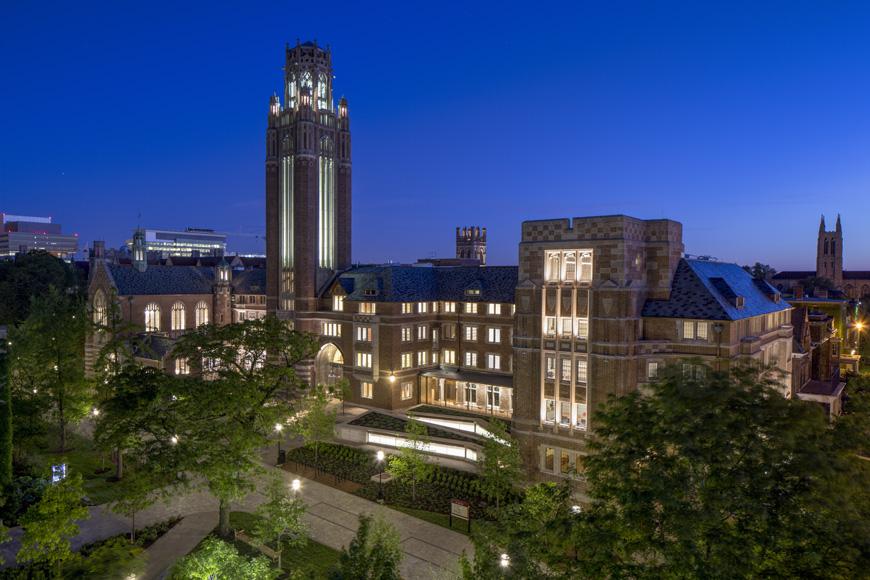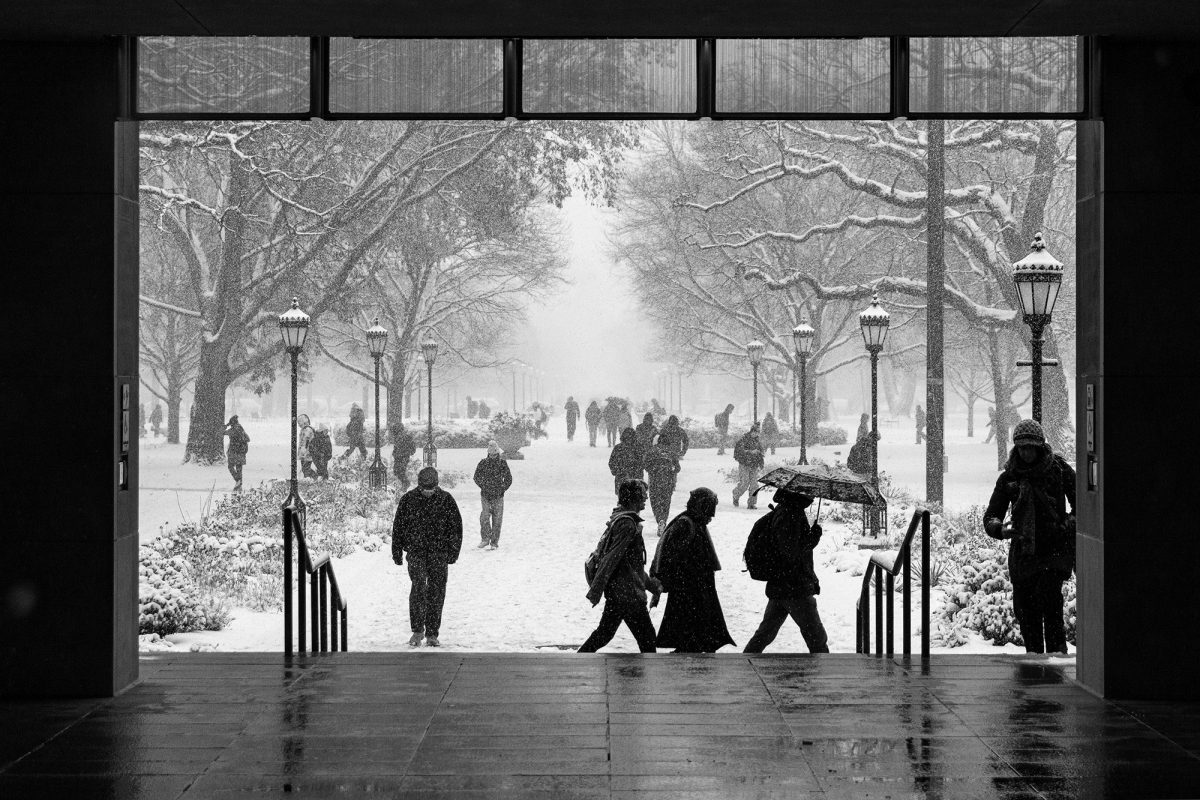On Friday, Saieh Hall hosted a symposium titled “For the Many: On the Prospects of Multiracial Populism” that brought together activists, academics, and politicians to discuss lessons and strategies for left-wing political movements in the United States. The event was sponsored by the Center for the Study of Race, Politics, and Culture, the Working Families Party, and other University and political groups.
The University of Chicago “was kind of an ideal place” to hold the event, Aziz Rana, professor of law at Cornell University and one of the organizers of the event, told The Maroon. The University of Chicago, he said, was instrumental in the formation of a past bipartisan consensus that espoused “absolute bedrock faith in market capitalism,” while ignoring the realities of race in the United States—a state of affairs which he believes led to the rise of President Trump. “What better place to have a conversation about the possibility for a class-conscious multiracial and truly transformative majority?” he said.
Ted Fertik, a senior strategist with the Grassroots Policy Project and the Working Families Academy, also organized the event. He said he saw the event as an opportunity to examine a term whose meaning remains contested. The term “multiracial populism,” he told The Maroon, “has been percolating for the last two to five years without anyone really trying to define it.” He said left-wing activists have been excited about a politics that goes beyond the “small-bore” solutions offered by liberalism.
Fertik noted that historical movements labeled “populist,” “didn’t always necessarily have the best record on questions of race and racism,” and today “movements coming out of especially Black and Brown communities [don’t] necessarily see themselves reflected in this sort of broader, emerging populist politics.” The task, then, becomes building a movement that melds a radical agenda centered around class antagonism with a racially inclusive structure.
Adom Getachew, an assistant professor of political science at the University of Chicago, told The Maroon that in the era of Trumpism, mainstream scholarly and popular discourse “has conceded or accepted the view that populism is antidemocratic, which just seems so strange [because] whatever it is, it’s a project of building majorities.”
For Getachew, it’s just a question of building majorities “in a way that centers anti-racist social justice movements,” she said.
The symposium focused on the difficulties of building a movement that is both politically radical and radically inclusive. Maurice Mitchell, national director of the Working Families Party, highlighted this tension in his introduction to the event.
In order to overcome the electoral advantage held by the Republican party in the Senate, which through its structure grants white, rural voters disproportionate representation, “we will have to win votes in places where people don’t automatically share our politics, especially on questions of race and racism,” Mitchell said.
“How do we do that without sacrificing our commitments to anti-racist politics?” he asked. “To me, the ‘multiracial’ in ‘multiracial populism’ means that we will only build a powerful working-class majority in this country by talking honestly about race and racism, not by avoiding the subject.”
Mitchell cited the example of public swimming pools in the South that were defunded and drained by segregationists in order to prevent Black people from accessing them, thereby denying everyone the opportunity. He compared this to how, in his opinion, the right feeds the racial fear and resentment of the white working class in order to advance an agenda that hurts all working people. Only through confronting and exposing this deception, he said, can the left win political victories.
As the first panel of the day, “Global and Historical Lessons,” showed, the meaning and utility of the term “multiracial populism” is far from settled. The panel’s moderator, University of Illinois at Chicago professor Barbara Ransby, was outspoken in her skepticism of the term, questioning whether the term is worth rehabilitating.
“To me, ‘populism’ comes with a lot of baggage,” she said. “It’s so vague, it’s so ambiguous, it can be a lot of things. And into that come a lot of very nasty characters. We’re not just talking about an academic debate here; we’re talking about how does this term traffic and travel in the real world.”
In a panel titled “What Do We Want?” professor Yarimar Bonilla of Rutgers University argued that efforts towards left-wing coalition-building must incorporate the voices of people in the United States’s overseas territories, who she said are frequently overlooked.
“That’s, I think, one of the first problems for thinking about a politics of the many—what about the few?” she said. “We think of the few as the elites, but sometimes the few are the minorities.”
While the difficulties of effecting political change came up frequently, the panelists were hopeful overall. The current political status of the United States, speakers stressed, provides a rare opportunity for an organized left to win substantial victories.
For Fertik, now is the perfect time to confront both race and class in the political sphere.
“I was scared when Trump got elected that the common sense position among your average liberal in America would be that this is such an aberration and we just have to go back to what we had before,” Fertik told The Maroon. While that may have initially been the case, Fertik said, “I actually don’t think it took that long…to convince people that there must be something more wrong than that with what was going on before for something like Trump and Trumpism to happen."
“Once that switch went off,” Fertik said, “I think it actually became dramatically easier to talk about race in a political setting, and racial justice demands, and not have that seem like it’s somehow at odds with building broad-based solidarity.”








